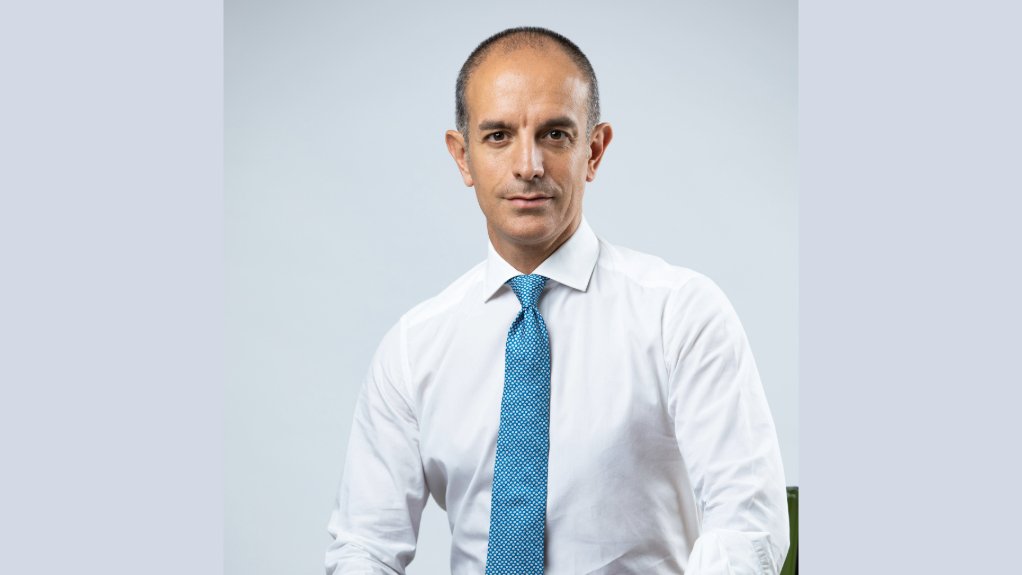Enel Green Power looks to augment its South African footprint
As it marks a decade in the region, renewable-energy company Enel Green Power Southern Africa is looking to bolster its footprint here, with a keen focus on skills development and capitalising on opportunities provided by the energy markets' evolving regulatory landscape and the growing renewable-energy market.
This was highlighted by the company during a media roundtable on December 4, held in Johannesburg.
Italy-headquartered Enel Group is aiming to have a zero carbon footprint by 2040, ten years ahead of its international commitments. This will be led by the development of Enel Green Power’s renewables, with the aim of 100% renewable-energy production by 2040, from the current base of 74%.
It is aiming to have completed its coal exit by 2027 and gas by 2040.
Enel Green Power is looking to close the year with 66 GW of renewable energy in operation and it has plans to develop an additional 12 GW globally over the next three years.
South Africa’s contribution would be about 10% of this, or 1.1 GW, Enel Green Power Southern Africa country manager Manuele Battisti informed.
Enel Green Power Southern Africa entered the market over ten years ago, after the introduction of South Africa’s Renewable Energy Independent Power Producer Procurement Programme.
It has since developed, built and is operating 1 257 MW of renewables capacity in South Africa, spread across various provinces. It also developed and operates the 34 MW Ngonye solar project, in Zambia.
Battisti said that, while the company was technology-agnostic, the most important technologies for South Africa for the company were wind, battery storage and solar PV.
The 1.1 GW of additional capacity by 2027 includes the 330 MW Impofu wind project cluster in the Eastern Cape, where construction is already under way, and which is set to connect to the grid in 2026.
Other projects are also progressing, with a final investment decision expected on one imminently.
Meanwhile, Battisti highlighted the evolution of South Africa’s energy market as “very good”, noting that it provides opportunities to participate in an attractive way, with options to sell to State-owned utility Eskom as well as private companies.
Enel Green Power Southern Africa regulatory affairs manager Boitumelo Kiepile added that reforms under way in the energy industry were a step in the right direction, with a more open, competitive market, where different companies were able to participate in various capacities.
Battisti said the company would also aim to be part of the solutions looking to resolve grid constraints in the country, which he noted was not a unique challenge to South Africa.
This includes deploying storage systems in the medium term, and participating in tender process for transmission expansion in the long term.
SKILL AND COMMUNITY DEVELOPMENT
Enel Green Power Southern Africa people and organisation head Abigail Fidelis pointed out that, while there had been improvements in addressing the skills shortage for renewable energy over the past decade, there was still a mismatch between the rate of growth in the industry and the amount of skills required to meet this demand.
However, she highlighted that initiatives were under way to improve this, including government programmes and incentives for companies.
The company partnered with various training institutions and provided practical learning experiences in the industry, as well as soft skills training, Fidelis informed.
“It’s very important in this time for renewable energy to invest in learnerships, partnerships, mentorships with these colleges and academic institutions in order for us to continue to grow the skills.”
As part of its commitment to creating shared value for local communities in South Africa, the company has invested about R4.5-billion into various projects. These initiatives focus on enterprise development.
The company supports various community activities as part of this commitment, which includes a bursary programme, a Covid-19 awareness programme, a healthcare wellness centre and an afterschool programme.
Moreover, Battisti said that 45% to 49% of projects were owned by local companies, with a majority of this constituting broad-based black economic empowerment companies and the rest community trusts.
A portion of revenue from projects was also allocation to socioeconomic development, he added.
Article Enquiry
Email Article
Save Article
Feedback
To advertise email advertising@creamermedia.co.za or click here
Announcements
What's On
Subscribe to improve your user experience...
Option 1 (equivalent of R125 a month):
Receive a weekly copy of Creamer Media's Engineering News & Mining Weekly magazine
(print copy for those in South Africa and e-magazine for those outside of South Africa)
Receive daily email newsletters
Access to full search results
Access archive of magazine back copies
Access to Projects in Progress
Access to ONE Research Report of your choice in PDF format
Option 2 (equivalent of R375 a month):
All benefits from Option 1
PLUS
Access to Creamer Media's Research Channel Africa for ALL Research Reports, in PDF format, on various industrial and mining sectors
including Electricity; Water; Energy Transition; Hydrogen; Roads, Rail and Ports; Coal; Gold; Platinum; Battery Metals; etc.
Already a subscriber?
Forgotten your password?
Receive weekly copy of Creamer Media's Engineering News & Mining Weekly magazine (print copy for those in South Africa and e-magazine for those outside of South Africa)
➕
Recieve daily email newsletters
➕
Access to full search results
➕
Access archive of magazine back copies
➕
Access to Projects in Progress
➕
Access to ONE Research Report of your choice in PDF format
RESEARCH CHANNEL AFRICA
R4500 (equivalent of R375 a month)
SUBSCRIBEAll benefits from Option 1
➕
Access to Creamer Media's Research Channel Africa for ALL Research Reports on various industrial and mining sectors, in PDF format, including on:
Electricity
➕
Water
➕
Energy Transition
➕
Hydrogen
➕
Roads, Rail and Ports
➕
Coal
➕
Gold
➕
Platinum
➕
Battery Metals
➕
etc.
Receive all benefits from Option 1 or Option 2 delivered to numerous people at your company
➕
Multiple User names and Passwords for simultaneous log-ins
➕
Intranet integration access to all in your organisation



















